Growing bananas is a priority in agricultural development in Hung Yen Province’s Khoai Chau District and banana plants are being grown in many communes like Tu Dan, Dai Tap, Dong Ket and Dong Ninh.
In recent years, bananas have become a key crop and the main source of income for people in Khoai Chau District, Hung Yen Province. Growing one hectare of bananas costs less than 20 million dong but can yield a profit of nearly 200 million dong a year.
As one of the pioneers in growing bananas in this area, Pham Nang Thanh in Dai Tap Commune, Khoai Chau District, Hung Yen Province acknowledged that bananas have a short growing period, require low investment and little technology. The market for bananas, both fresh and dried, is expanding. Accordingly, growing bananas can give a high income to farmers.
Thanh started growing bananas using VietGap standards in late 2014. He invested in an automatic watering system using water from rivers and wells to reduce labour costs and increase effectiveness. On average, every three to four days, the watering system is automatically turned on. In early 2015, Thanh was presented with a VietGap certification for his 30ha of banana plants with a productivity rate of 1,500tonnes of bananas/year.
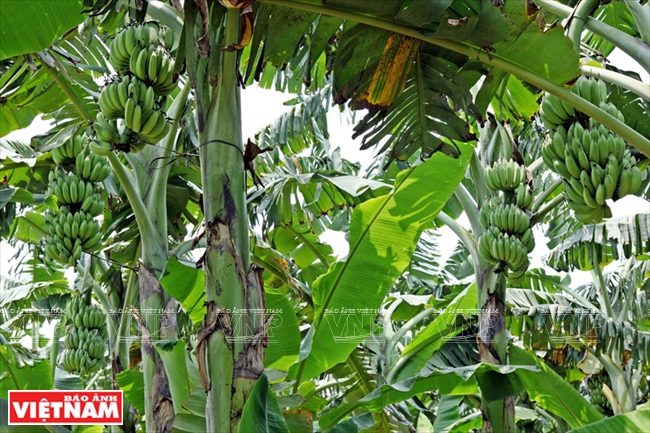
Banana plants, the key crop and main source of income for people in Khoai Chau District, Hung Yen Province.
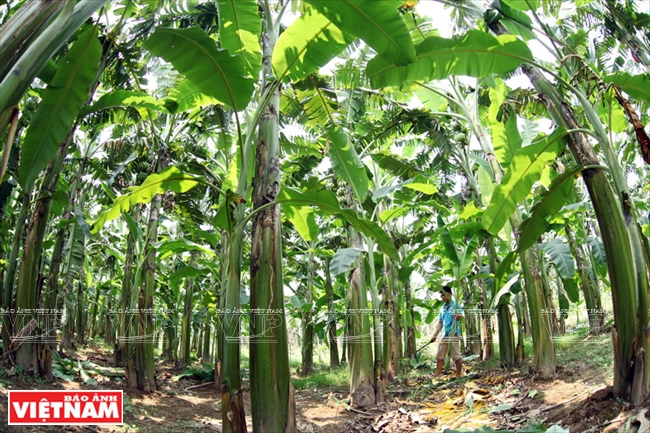
Cultivating areas in Khoai Chau district are located near the river banks.
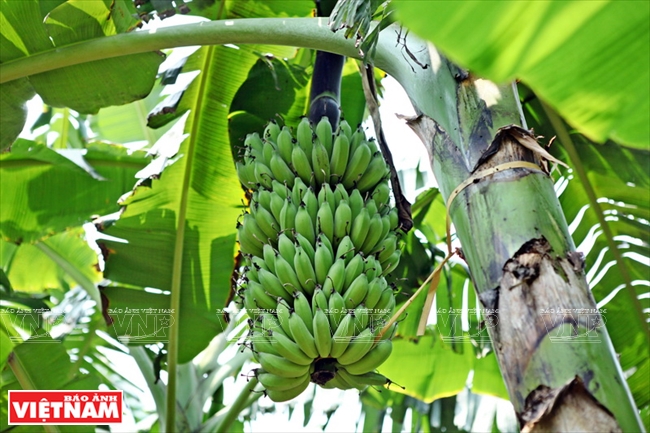
Banana plants with large clusters of beautiful fruit.
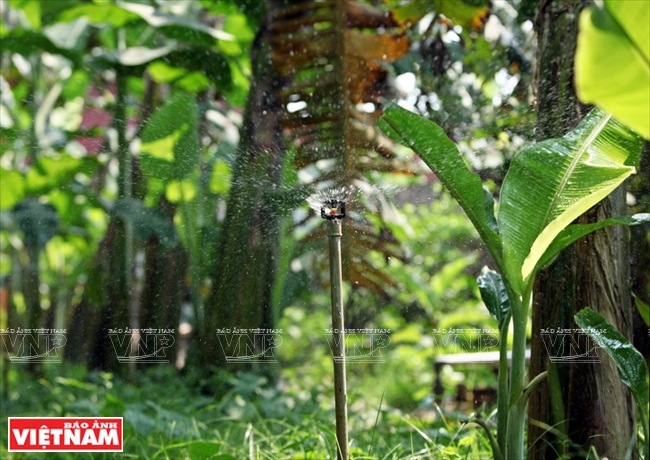
The automatic watering system in a banana orchard.
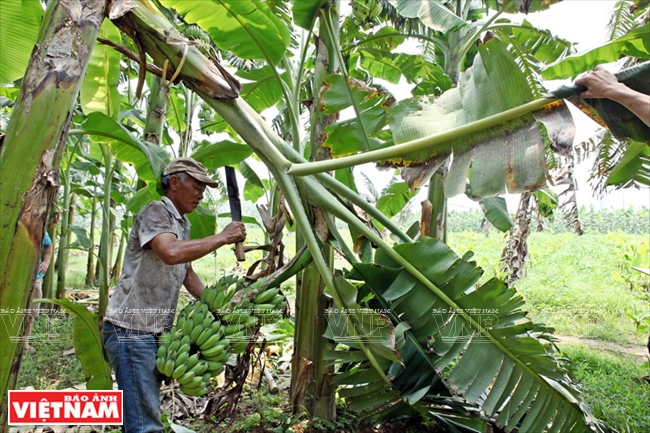
After the fruit is harvested, the plant is cut down to prepare for a new period of growing.
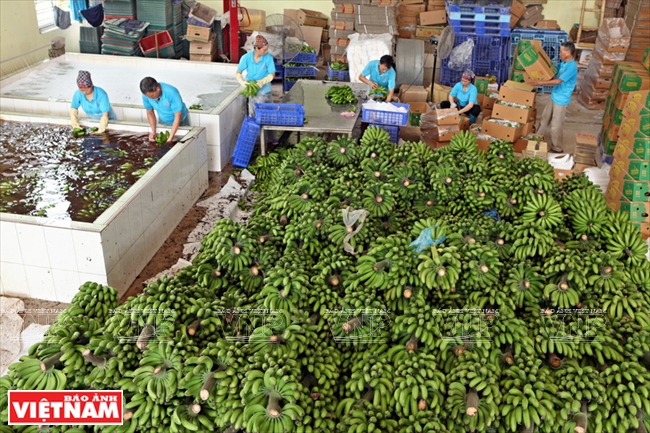
Harvested bananas are delivered to a workshop to be processed.
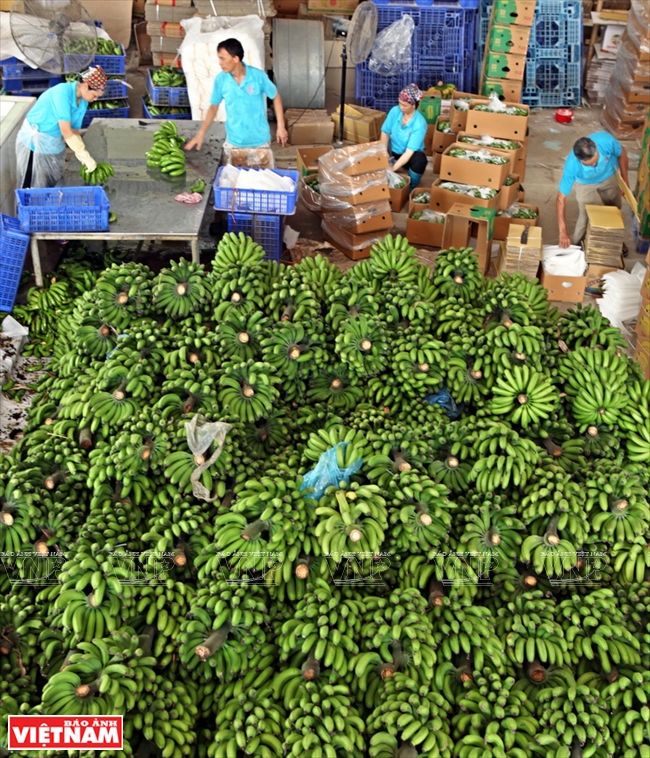
Workers of Thuan Tam Thanh (3T) Company clean and separate banana tiers and package the fruit.
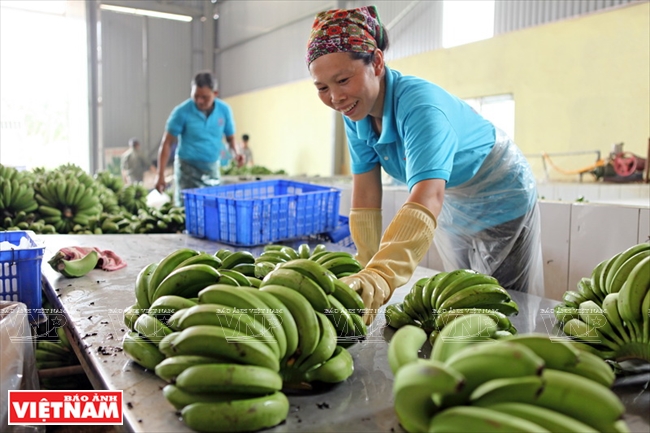
Banana tiers are cleaned and dipped into Tecto 0.2% solution then drained and put into cardboard boxes.
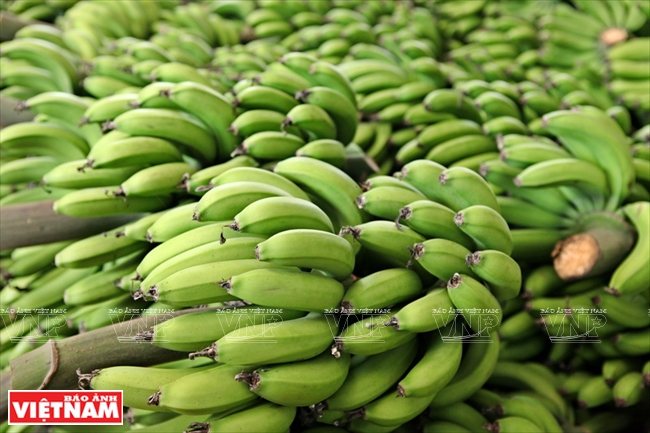
In order to meet export standards, farmers need to protect fruit from insects and damage by frost.
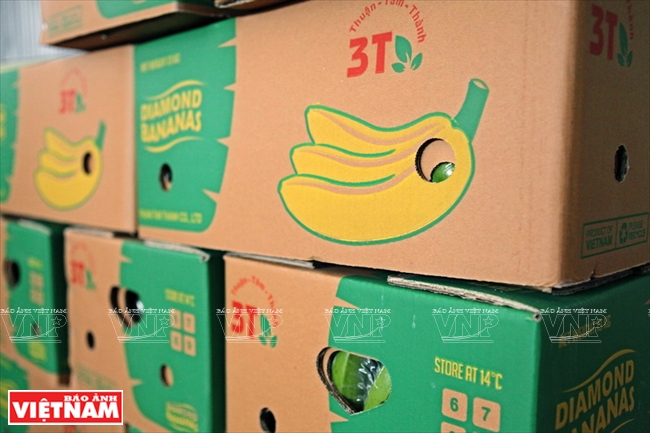
Each day, Thuan Tam Thanh Company exports about 20tonnes of banana to countries like Russia,
Malaysia, RoK and Arab countries. |
According to Thanh, at present, bananas are grown from tissue culture. The seedlings are produced in laboratories. This method ensures a good harvest and reduces risks in cultivation.
On the plains, the suitable density for growing bananas are 3,500 plants/ha. After reaching maturity, plants are composted and watered to enhance root development. With regular tending, banana plants can grow quickly, blossom and reach high productivity.
Banana plants need nutrients, especially kali and protein which strongly affect their growth and yield as well as the quality of fruit during storage and transporting.
Fertilisers need to be buried underground to reduce loss. Organic fertilisers can be added to the soil before growing. Micronutrient fertilisers can be added directly to the soil or sprayed on leaves together with other plant protection products.
According to Nguyen Van Dat, Head of the Department of Agriculture and Rural Development of Khoai Chau District, since the project on establishment, management and development of “Khoai Chau Banana” brand was started, the total area for banana growing of the district has reached 500ha.
Developing banana growing in Khoai Chau is one of the priorities of the locality. Annual yield reaches more than 30,000tonnes, equivalent to more than 200 billion dong. Khoai Chau District is planning to develop its cultivating area into a production area with bananas as the key plant to generate income.
Story: Quynh Anh - Photos: Tran Cong Dat